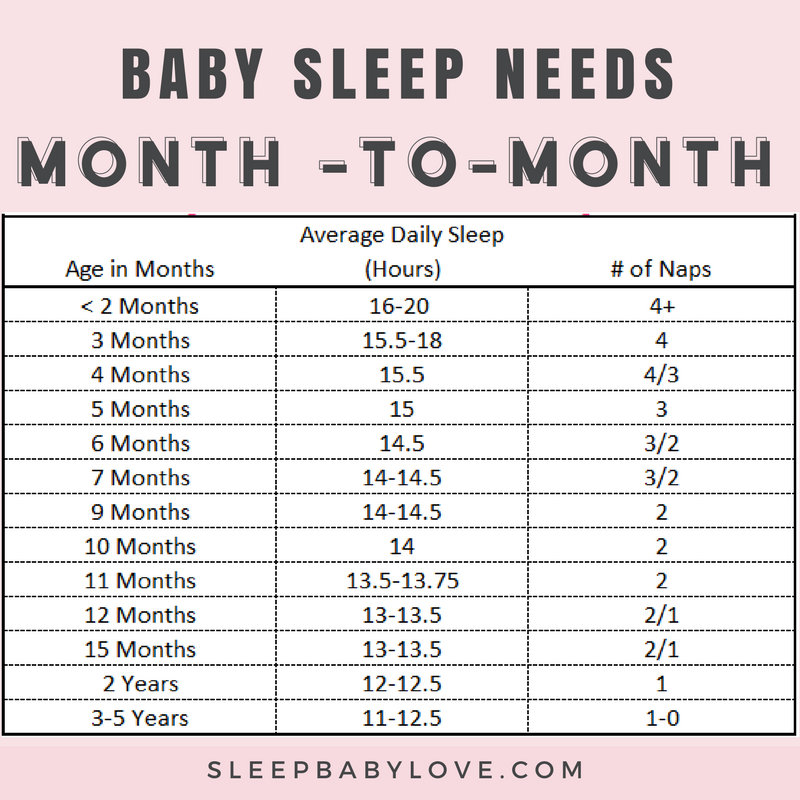When Do Babies Sleep Through the Night? Learn the Golden Rule of Amazing Sleep
When do babies sleep through the night? I get this question a lot.
As easy as a question it is, it’s not that easy of a question to answer. Why? Because there are follow up questions and sometimes at a play-date, grocery store, birthday party when parents are asking it, it’s hard to give the full answer.
But, now that we have the time, let me ask the following questions:
1) Can your baby put themselves to sleep independently or self-soothe?
2) What is your baby’s overall schedule?
So, When Do Babies Sleep Through the Night?
Once I know the answer to those questions, I can at least give the appropriate answer. Wait for it…
The Golden Rule of Great Sleep… and I’m talking, sleeping through the night, well-rested, happy baby sleep is this:
“Amazing sleep (meaning a baby will sleep through the night) is a combination of 1) strong self soothing skills 2) an age appropriate nap schedule and 3) a bedtime at the right time.”
You can have one component down but until you focus on all three components, many babies will not be in the amazing sleep club.
And, becoming a card-carrying member of the amazing sleep club is really a special time!
So let’s break the golden rule of great sleep down:
1) Strong self-soothing skills:
This is the big one. The Cadillac of components for great sleep. This means that your baby can transfer sleep cycles on her own. (You may have heard about the term sleep training, which teaches your baby these independent skills – check this out this ultimate sleep training guide to learn more)
It’s OK that your baby wakes up, but when she does, she can go back to sleep on her own (or self-soothe) without a sleep association like a bottle/boob/paci/swinging/rocking or shushing. (Feel free to add any of your get-your-baby-back-to-sleep gestures).
Self-soothing means your baby can fall back asleep on their own. Independently. Without you.
2) Age Appropriate Nap Schedule:
A baby will sleep an average amount of time during the day and we strive for them to sleep about 11-12 hours per night. The schedule is determined by the number of naps and total sleep that your baby requires and the timing that he can handle before becoming overtired.
For babies younger than 4-6 months, I always encourage keeping wake periods short until their natural sleep rhythms emerge at which time you can work on a by-the-clock schedule.
Regardless, of whether you follow a flexible waketime schedule or a by the clock schedule – it’s the consistency and the routine of enabling your child to remain well rested.
3) A Bedtime At The Right Time:
A late bedtime might have worked when your baby was a wee-one but that late bedtime stops working as your baby becomes more aware and sleep begins to organize (somewhere around 4 months if not before).
It is so important that you keep your baby well-rested before bed and it is equally as easy to push your baby’s bedtime wayyyy too late, especially with working parents, other kids and just life in general.
But, don’t do it – and I know it sounds crazy for some, but bring the bedtime earlier! Most babies go to sleep around 6 – 8pm but really I rarely see a baby with a bedtime later than 7pm, especially on a 2 nap schedule.
Here are general guidelines of waketimes to guide you from how long your baby is up between their last nap and bedtime. These times reflect the time that your baby is SLEEPING, so make sure to put them in the crib earlier to account for the time to fall asleep independently.
6-12 Months: Waketime from the last nap to bedtime: 2.5 hours to 3.5 hours
12-24 Months: Waketime from the last nap to bedtime: 3 hours to 4 hours
Typically 4 hours is as long as it takes before your baby is overtired but many babies can’t even make it that long of a stretch.
Gauge bedtime by tired signs and the quality of naps during the day. Also, try and hone on the waketime that your baby can handle.
If you are consistently getting 40-minute intruders or your child has trouble settling, it’s a pretty good indication the bedtime is too late. Keeping a sleep log is also a great way to figure out the magical times that yield the best overnight sleep.
Getting rid of night feedings
Once you have the right skills and sleeping at the right timing, you are well on your way to have a well-rested child. But, what gives when night feedings don’t go away naturally?
When you’re ready to drop feeds
Development of sleep over your baby’s first year, typically can result in a baby being able to sleep through the night, naturally. Sometimes night feeding goes away – sometimes you have to help your baby realize that it’s time that they can sleep 10-12 hours of sleep at night.
As a general rule, I use the guidance of when your baby’s night feeding is appropriate:
- Newborn – 4 Months – As many as required
- 4-7 Months: 1-2 Night feedings
- 8 Months+: 0 Nightfeedings*
It’s not inappropriate when your baby has one night feeding from 8 – 12 months and sleeps beautifully otherwise. It’s when your baby is up 4 times at 10 months old that I think there is something bigger going on. If we are focusing on a sleep training plan after 8 months, I like to focus on a consistent sleep training plan to make it as clear to your child to achieve results.
Baby Readiness to Drop Feedings
Getting on board that your child is ready to drop the feeds is the reason why many apprehensive parents fail to take action (and why feeds continue on for a long time). Many parents are doubtful and can’t decipher when your baby does not need food and can sleep for longer periods.
Some of the biggest cues of your baby’s readiness to drop night feedings include:
- Your baby is waking for .5-1.5 ounces and then nodding off
- Your baby doesn’t eat well during the day since there are many calories consumed at night
- Your baby has historically gone for long stretches and/or previously slept through the night (showing you that they are capable)
What’s the Plan To Drop Night Feedings?
Having your baby sleep through the night is achievable when you have a plan (since 2 am is not an appropriate time to make any decisions).
- Pick how many night feedings your baby needs
- Disassociate food and falling asleep. The last feeding should either be in the front of the bedtime routine or completely separated from the bedtime routine
- Come up with an entire plan to create your plan (including which sleep training method you will use to help your child get back to bed)
- STAY CONSISTENT (sometimes that’s the hardest part)
- Repeat until your baby sleeps through the night without night waking!!!!
Conclusion:
You can have a great sleeper when you have one of the components down 1) self-soothing skills, 2) age-appropriate nap schedule, and 3) bedtime at the right time. But it’s not until all 3 of the components are solid when babies sleep through the night.
You can do it and if you can’t, I’m here to help! If you have all three components nailed down and your baby still requires 1 feed in the middle of the night, don’t stress it since there are some babies that may need a feed up until 9 months.
Once your baby is sleeping through the night and has an amazing sleep schedule, congratulations, you are officially a card-carrying member of the amazing sleep club.



